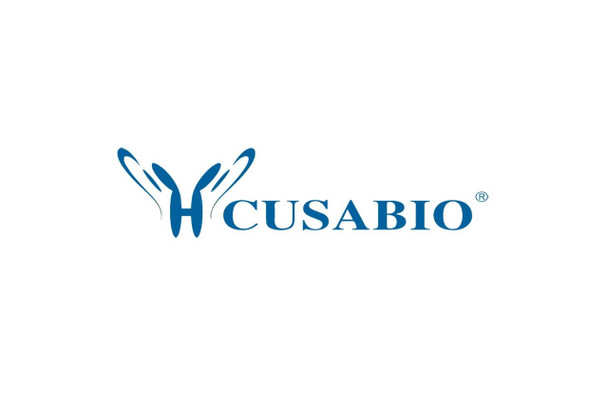Cusabio Escherichia coli Recombinants
Recombinant Escherichia coli Probable phosphatidylethanolamine transferase Mcr-1 (mcr1), partial | CSB-EP745804ENL1
- SKU:
- CSB-EP745804ENL1
- Availability:
- 3 - 7 Working Days
Description
Recombinant Escherichia coli Probable phosphatidylethanolamine transferase Mcr-1 (mcr1), partial | CSB-EP745804ENL1 | Cusabio
Alternative Name(s): Polymyxin resistance protein MCR-1
Gene Names: mcr1
Research Areas: Microbiology
Organism: Escherichia coli
AA Sequence: HYASFFRVHKPLRSYVNPIMPIYSVGKLASIEYKKASAPKDTIYHAKDAVQATKPDMRKPRLVVFVVGETARADHVSFNGYERDTFPQLAKIDGVTNFSNVTSCGTSTAYSVPCMFSYLGADEYDVDTAKYQENVLDTLDRLGVSILWRDNNSDSKGVMDKLPKAQFADYKSATNNAICNTNPYNECRDVGMLVGLDDFVAANNGKDMLIMLHQMGNHGPAYFKRYDEKFAKFTPVCEGNELAKCEHQSLINAYDNALLATDDFIAQSIQWLQTHSNAYDVSMLYVSDHGESLGENGVYLHGMPNAFAPKEQRSVPAFFWTDKQTGITPMATDTVLTHDAITPTLLKLFDVTADKVKDRTAFIR
Source: E.coli
Tag Info: N-terminal 6xHis-SUMO-tagged
Expression Region: 178-541aa
Sequence Info: Partial
MW: 56.7 kDa
Purity: Greater than 90% as determined by SDS-PAGE.
Relevance: Probably catalyzes the addition of a phosphoethanolamine moiety to lipid A. Phosphoethanolamine modification of lipid A gives polymyxin resistance (PubMed:26603172).1 Publication Confers resistance to polymyxin-type antibiotics; expression of the Mcr-2 prin in E.coli increases colistin and polymyxin B minimal inhibitory concentration (MIC) from 0.5 mg/ml to 2.0 mg/ml. The pHNSHP45 plasmid can transfer efficiently (0.1 to 0.001) to other E.coli strains by conjugation and increases polymxin MIC by 8- to 16-fold; it may not require selective pressure to be maintained in the cell. When transformed into K.pneumoniae or P.aeruginosa it also increases polymxin MIC 8- to 16-fold. In a murine (BALB/c mice) thigh infection study using an mcr1-encoding plasmid isolated from a human patient, the plasmid confers in vivo protection against colistin (PubMed:26603172).
Reference: "Emergence of plasmid-mediated colistin resistance mechanism MCR-2 in animals and human beings in China: a microbiological and molecular biological study."Liu Y.Y., Wang Y., Walsh T.R., Yi L.X., Zhang R., Spencer J., Doi Y., Tian G., Dong B., Huang X., Y.F., Gu D., Ren H., Chen X., Lv L., He D., Zhou H., Liang Z., Liu J.H., Shen J.Lancet Infect. Dis. 16:161-168(2016)
Storage: The shelf life is related to many factors, storage state, buffer ingredients, storage temperature and the stability of the protein itself. Generally, the shelf life of liquid form is 6 months at -20?/-80?. The shelf life of lyophilized form is 12 months at -20?/-80?.
Notes: Repeated freezing and thawing is not recommended. Store working aliquots at 4? for up to one week.
Function: Probably catalyzes the addition of a phosphoethanolamine moiety to lipid A. Phosphoethanolamine modification of lipid A gives polymyxin resistance
Involvement in disease:
Subcellular Location: Cell inner membrane, Multi-pass membrane protein
Protein Families: Phosphoethanolamine transferase family
Tissue Specificity:
Paythway:
Form: Liquid or Lyophilized powder
Buffer: If the delivery form is liquid, the default storage buffer is Tris/PBS-based buffer, 5%-50% glycerol. If the delivery form is lyophilized powder, the buffer before lyophilization is Tris/PBS-based buffer, 6% Trehalose, pH 8.0.
Reconstitution: We recommend that this vial be briefly centrifuged prior to opening to bring the contents to the bottom. Please reconstitute protein in deionized sterile water to a concentration of 0.1-1.0 mg/mL.We recommend to add 5-50% of glycerol (final concentration) and aliquot for long-term storage at -20?/-80?. Our default final concentration of glycerol is 50%. Customers could use it as reference.
Uniprot ID: A0A0R6L508
HGNC Database Link: N/A
UniGene Database Link: N/A
KEGG Database Link: N/A
STRING Database Link: N/A
OMIM Database Link: N/A









